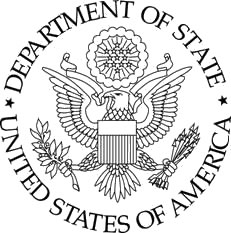 A 2008 cable from the US Embassy in Helsinki to Washington describes the efforts of the U.S. Ambassador and his staff to prevent a change to the Finnish reference pricing scheme for medicines. At issue was a provision in Section 57(c) of the Medicines Act that reimbursed process patent-protected medicines at a higher rate than generic competitors. Section 57(c) had been established in 2006 “after much Industry and Embassy lobbying,” but by the summer of 2007, Finnish government officials were seeking its repeal.
A 2008 cable from the US Embassy in Helsinki to Washington describes the efforts of the U.S. Ambassador and his staff to prevent a change to the Finnish reference pricing scheme for medicines. At issue was a provision in Section 57(c) of the Medicines Act that reimbursed process patent-protected medicines at a higher rate than generic competitors. Section 57(c) had been established in 2006 “after much Industry and Embassy lobbying,” but by the summer of 2007, Finnish government officials were seeking its repeal.
On June 25, 2008, the Cabinet approved a reference pricing scheme that repealed Section 57(c). (This is what prompted the US Embassy to write the cable to Washington). The repeal of Section 57(c) then headed to the Parliament, where it passed in November.
The U.S. Embassy had worked with pharmaceutical industry representatives to keep Section 57(c) intact. According to the leaked cable:
Since January 2008 the Embassy has raised this at the highest level of Finnish government, including with the Prime Minister but also with virtually every other minister in the entire government. Our strategy, carefully coordinated with industry and Washington, has focused on underscoring that Finland’s knowledge-based economy has attracted much r&d investment, including health-related project funds from the USG.
The cable calls the repeal “disappointing” and argues that it “undermines the value of patent protection for medicines created and manufacturer by U.S. and other pharmaceutical companies.” It says that the Helsinki Embassy will “consult with local U.S. industry and Washington to determine if a Special 301 Listing is appropriate in the 2009 cycle.”
In 2009, the United States Trade Representative’s Special 301 Report did include Finland, and mentioning this particular dispute:
U.S. industry has expressed concern that the regulatory framework in Finland regarding process patents… will deny adequate protection to many of the top-selling U.S. pharmaceutical products currently on the Finnish market.
Later that year, the Department of State released its annual Investment Climate Statement, which also included a passage on the repeal of Section 57(c):
The reference pricing scheme passed by the Finnish parliament in November 2008 ended the 57(c) arrangement. By subjecting products protected by process patents to the reference pricing restrictions applicable to generic products, the new law deprives pharmaceutical process patent holders in Finland of appropriate compensation for the value of the intellectual property they created in the original products.
This dispute with Finland is part of a wider effort by the U.S. government and industry to establish new international norms for the negotiation of pharmaceutical prices. According to the 2011 Special 301 Report, US officials have sought to change pharmaceutical policies in “several industrialized trading partners, including Finland, Germany, Greece, Japan, Korea, New Zealand, Poland, and Taiwan.” Trade agreements with Australia and Korea have included sections that impose a framework of rules on the way drug prices are negotiated. The US Trade Representative is being lobbied to include provisions in the Trans Pacific Partnership Agreement based on Chapter Five of the Korea-US Free Trade Agreement.
Health advocates and state leaders in the U.S. are concerned that the establishment of new global rules on drug pricing will jeopardize the drug discounts obtained by government programs in the U.S. that serve low income Americans. These include Medicaid, and the “340b” program (which mandates discounted drugs for inner city clinics, AIDS Drug Action Programs, and other types of “covered entities”). State leaders have reached out to the administration to voice their concerns – see for instance, a recent letter to President Obama from VT Governor Shumlin.




